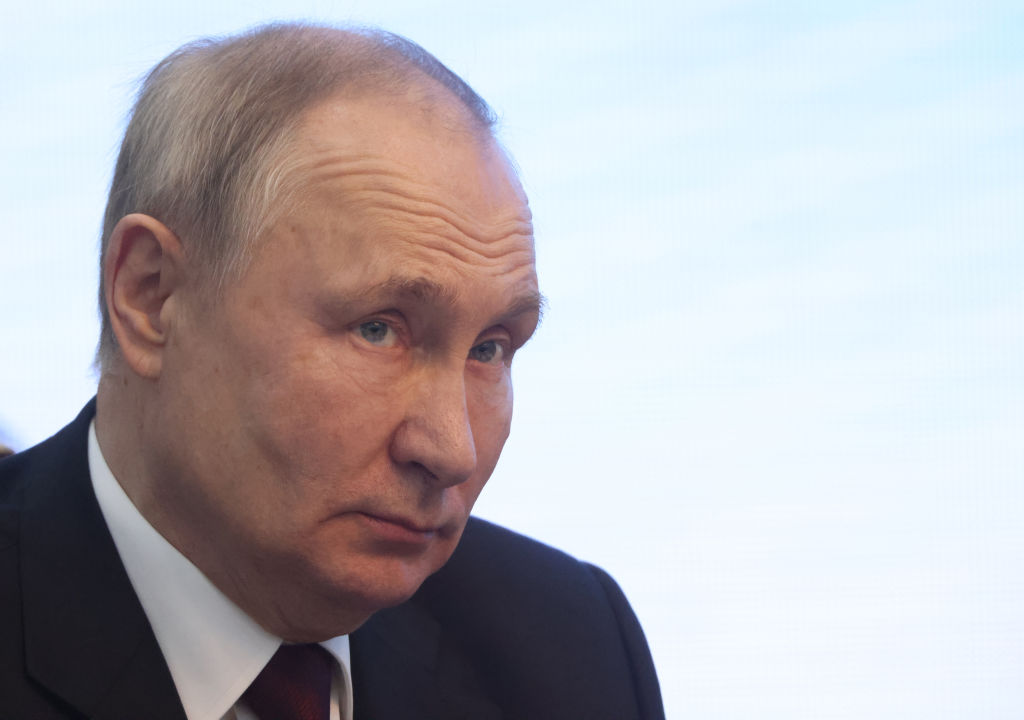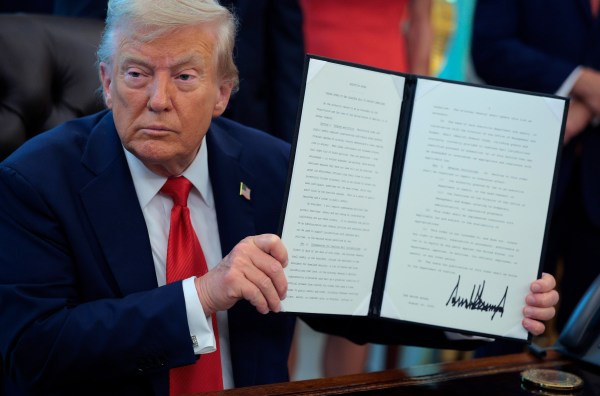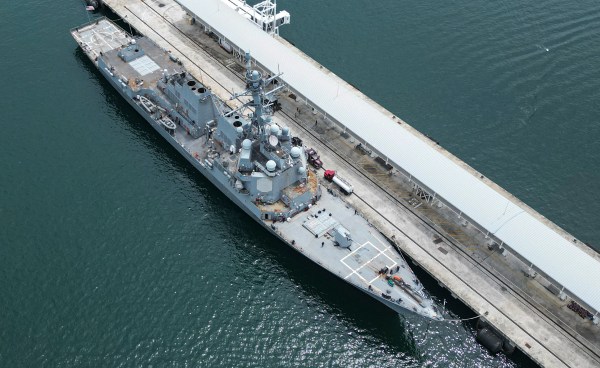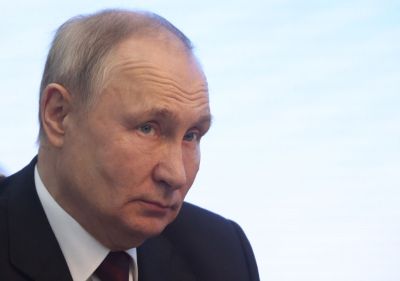With Turkish and Iranian drones raining death and destruction on the opposite sides of the war in Ukraine, it may be the right time to review Vladimir Putin’s agenda and tactics in the Middle East. A better understanding of the sizable and growing impact the war is having on Russia’s posture toward the Middle East will inform what the United States might expect in this critical region in the future.
Putin’s Middle East agenda has been of a piece with his overarching goal. From his first day in the Kremlin nearly 23 years ago, he committed to the recovery of the political, economic, and geostrategic assets lost in the Soviet Union’s demise.
Putin’s strategy closely followed the Soviet Union’s three key priorities. The first was the attainment of superpowership, which the perennial Soviet Foreign Minister Andrei Gromyko defined as the situation in which “not a single problem of any significance” could be “solved without the Soviet Union or against its wishes.”
The second objective was to cut America down to size: to push and pull wherever possible to reduce Washington’s sway throughout the world, to defeat its allies and to help its foes. Putin’s update of this aim was to help thwart or, better yet, crush pro-democracy “color revolutions,” since in his mind every one of them was a plot by the U.S.-led West. He has succeeded in Syria but has failed, twice, in Ukraine. The tragic consequences of those failures are with us today.
The final and the most ambitious aim of the Soviet global agenda is to spearhead a worldwide political and ideological crusade against America. Putin has avidly pursued this target since the beginning of his fourth presidency in 2018. His sole update has been to replace the Soviet campaign for the “victory of the world socialist system” with the new “anti-colonial” struggle for a “multi-polar world” free of the domination by the U.S.-led “West.”
How has this agenda fared in the Middle East? The short answer is that Putin has done quite well in making Russia a regional superpower and, in the process, significantly reducing U.S. influence there (although not without some American self-sabotage). But he has failed in his search for committed allies—and not merely clients and on-again/off-again fellow travelers—in his anti-West crusade.
The successes Putin has enjoyed stemmed from three elements of his regional strategy. First, he had things to sell or trade: civil nuclear power, oil, gas, and arms. Russia’s surface-to-air missile systems were especially popular, whether actually purchased or causing “interest” from potential buyers, as were the Kornet anti-tank guided missiles. And of course tons of Kalashnikovs: no longer the iconic AK-47, but the souped-up AK 74-M, sold or licensed for domestic production by Rostec, most recently to Saudi Arabia in 2019.
Second, Putin pursued the Soviet Union’s objectives with decidedly non-Soviet or even un-Soviet tactics. Instead of a rigidly ideological choice of friends and foes, he adopted what Russian commentators call a “multi-vector” approach, perhaps better defined as omnivorousness. He managed to be seen, if not as a friend, then at least as a more-or-less reliable partner by some of the region’s sworn enemies: Iran and Israel, Turkey and Syria, and Turkey and Iran to cite the most conspicuous instances.
And then there was Putin’s energetic personal diplomacy. In his second presidential term, 2004-2008, he traveled to Egypt, Israel, Saudi Arabia, Jordan, Qatar, Turkey, Iran, and the United Arab Emirates. All these state visits were the first by a Russian, Soviet or post-Soviet leader. In another historic first, King Salman of Saudi Arabia came to Moscow in 2017.
To be sure, in the business of cutting America down to size, the U.S. has performed a great deal of surgery on itself. Washington did nothing after Bashar al-Assad crossed Barack Obama’s “red line” by killing or injuring thousands of Syrians with sarin and chlorine. Donald Trump withdrew almost all U.S troops from Syria, failed to use force after Iran’s 2019 drone attack on Saudi’s oil fields, and reduced the number of U.S. troops in Iraq by almost three-quarters before leaving office. As a presidential candidate, Joe Biden damaged relations with Saudi Arabia by attacking the kingdom for the killing of the dissident and Washington Post columnist Jamal Khashoggi.
Still, it was Moscow’s newly found confidence, its readiness to exploit emerging opportunities, and deft quid-pro-quo engagements with the key players in the region that paved the way for geopolitical acquisitions that first equaled and soon exceeded the Soviet “footprint” in the region.
For the first time since Anwar Sadat expelled 16,000 Soviet “advisers” in August 1972, the Kremlin re-entered the larger Middle East militarily and saved the Assad regime in Syria in a de facto alliance with Iran in 2015. In addition to the naturally accrued prestige that stemmed from not leaving an old client in a lurch, Russia recovered the naval base in Tartus, first used by the Soviet Union in 1971, and acquired an airbase in Khmeimim.
In exchange for not interfering with Israel’s strikes against Iranian assets in Syria, even as Israeli missile and bombs occasionally landed close to Tartus, Putin apparently secured Israel’s refusal to export the Iron Dome anti-missile systems to Ukraine, despite multiple pleas from Kyiv and almost certainly from the White House as well.
Russia’s opposition to sanctions on Iran in the U.N. Security Council was repaid by Tehran’s providing Russia with Shakhid and Mohajer suicide drones, which became a key weapon in Putin’s strategy to gain victory by degrading the morale of Ukraine’s civilians after he had failed to defeat its soldiers on the battlefield. Last month Russia and Iran completed negotiations on the delivery of Fateh-110 and Zolfaghar ballistic missiles.
Still, apart from Iran and Syria, countries in the region use the Russian connection mostly to get America’s attention, register their annoyance with Washington, or avenge perceived slights. When U.S. arms sales are delayed due to human rights concerns, as happened with Egypt and Saudi Arabia, they turn, or pretend to turn, to Russia instead.
Better than nothing, of course, but still far from what Putin would like.
For a brief moment in the summer of 2019 it seemed like he may have finally netted an ally and created a rift in NATO to boot. Turkey, which gets almost half of its natural gas and about a quarter of its oil from Russia, began receiving Russian S-400 missile defense systems despite furious opposition from the White House, which responded by removing Ankara from the multinational F-35 Joint Strike Fighter program.
Yet whatever hopes Putin may have had had for enlisting President Erdoğan in his war on the West quickly evaporated. In Erdoğan, Putin met his match in shameless opportunism, deception, and ruthlessness. The relationship between Putin and Erdogan comes close to what a Russian proverb describes as “two bears in one lair.” Which is to say, one that is quite fraught and occasionally coming to blows, as when a Turkish F-16 downed a Russian Mig-24 jet over the Syrian-Turkish border in 2015. It took Erdogan over half a year to apologize.
Moscow and Ankara occasionally cooperate in northern Syria, with Iran the third party to the so-called Astana Process after the inaugural summit meeting in January of 2017 in Kazakhstan’s capital of Astana. Yet recriminations over the northern Syrian Idlib province erupt more or less regularly as the Turkish military and Turkey-backed Syrian rebels clash with Syrian troops who are supported by Russia’s indiscriminate bombing and strafing. There have also been clashes with Iranian troops and Iranian and Kurdish militias. The latter are considered a legitimate target by Turkey, which insists on a “security corridor” on the Syrian side of the border—something Russia vehemently opposes as incompatible with its repeatedly declared goal of bringing the entire country under Assad’s control. More spats will certainly flare up when Turkey intensifies and expands its military operations in Syria in advance of its presidential election next year, with Erdoğan following Putin’s lead in making war a key domestic legitimizing device.
Putin’s war on Ukraine further widened the fissures between the two countries when Turkey closed the Bosporus Straight ostensibly to all warships, but with the obvious goal of blocking Russia’s navy from reaching Syria and the Mediterranean beyond. More to Russia’s chagrin, Turkey’s Bayraktar TB2 drones proved invaluable to Ukraine’s resistance to the initial Russian onslaught. Grateful Ukrainians extolled the drones in posters and songs. Ukraine’s ardent supporter Lithuania commemorated the drone in a stamp.
In the end, only Iran came close to being the Kremlin’s ideological ally in the region. This status was underscored both by the diplomatic protocol and the content of a visit to Tehran last month by Russian Secretary of the Security Council Gen. Nikolai Patrushev. Putin’s longtime confidant, top adviser and likely the second most powerful man in Russia, Patrushev hails from the tight coterie Putin trusts the most: KGB officers in the 1970s Leningrad. An inveterate hater of the West and conspiracy theorist, Patrushev is an ultra-hawk, compared to whom Putin is almost a liberal.
Coming to Tehran as Putin’s stand-in, Patrushev was treated accordingly: In addition to meeting his counterpart, Ali Shamkhani, he was received by President Ebrahim Raisi. While the two security officials discussed “ways to combat attempts by Western intelligence agencies to interfere in the domestic affairs of the two countries,” in his statements in Tehran Patrushev raised the stakes by repeating Putin’s favorite themes. “The world is going through a turning point,” he was quoted as saying, according to Russian state daily Rossiyskaya Gazeta. “Russia and Iran today are at the forefront of the struggle for the establishment of a multipolar world order.” Putin’s second-in-command also echoed Supreme Leader Ali Khamenei, who declared at about the same time that the world was entering a new order, in which Asia would rise and the U.S. would decline under domestic problems and failure in foreign wars.
Still, in the end, the rapprochement fell short of unity. To deploy an intentionally mixed metaphor, the proof of the pudding is in the voting, and in both U.N. votes condemning Russia’s invasion of Ukraine, first in March and then in October of this year, Iran chose either to abstain or not vote rather than joining Syria, Belarus, Nicaragua, and North Korea in voting against the resolutions.
The war has also put to a test Russia’s “footprint” in Syria as troops and weapons are cannibalized to support the war in Ukraine. The diminution of Russia’s ability to defend and supply Assad’s regime will surely cause Damascus to rely more on Iran, while Turkey, too, will certainly seek to bolster its position in Syria at Russia’s expense. In another war-related setback, the sight of S-300 and S-400 systems missing their targets and of Mig fighter jets shot down by Ukrainian air defenses reverberate through the region where the quality and quantity of weapons is a key element in the seller’s political influence.
In the longer run, the war may spell greater trouble still. As Russia’s need for Iran’s armaments grows, the deepening of military and political cooperation between Moscow and Tehran will cause increasing anxiety in Jerusalem and Riyadh. The reportedly excellent personal rapport between Putin and the recently re-elected Israeli Prime Minister Benjamin Netanyahu may not be sufficient to assuage the nervousness in Jerusalem. In the end, an exasperated Israel may threaten the Kremlin with helping Ukraine’s air defenses unless Putin pulls back in his dealings with Iran—and follow through on the warning if Russia does not change its course. For their part, the Saudis could make their displeasure known by hiking oil production to lower its price as they did in March 2020 to teach Russia a lesson on cooperating with OPEC’s price supporting measures.
Deleterious as it has proved to be to almost every aspect of Russia’s geopolitical posture, Putin’s reckless misadventure in Ukraine also is beginning to affect the region that he so assiduously cultivated. He is far from an outright defeat, but his significantly narrowed options and higher risks all but ensure retreat from the activist and imaginative policies that, along with luck, were responsible for his successes.
Whether the U.S. is ready to exploit the opportunity is quite another matter. The war in Ukraine, the preoccupation with China, and growing isolationism on both sides of the political aisle do not seem to warrant holding one’s breath.






Please note that we at The Dispatch hold ourselves, our work, and our commenters to a higher standard than other places on the internet. We welcome comments that foster genuine debate or discussion—including comments critical of us or our work—but responses that include ad hominem attacks on fellow Dispatch members or are intended to stoke fear and anger may be moderated.
With your membership, you only have the ability to comment on The Morning Dispatch articles. Consider upgrading to join the conversation everywhere.